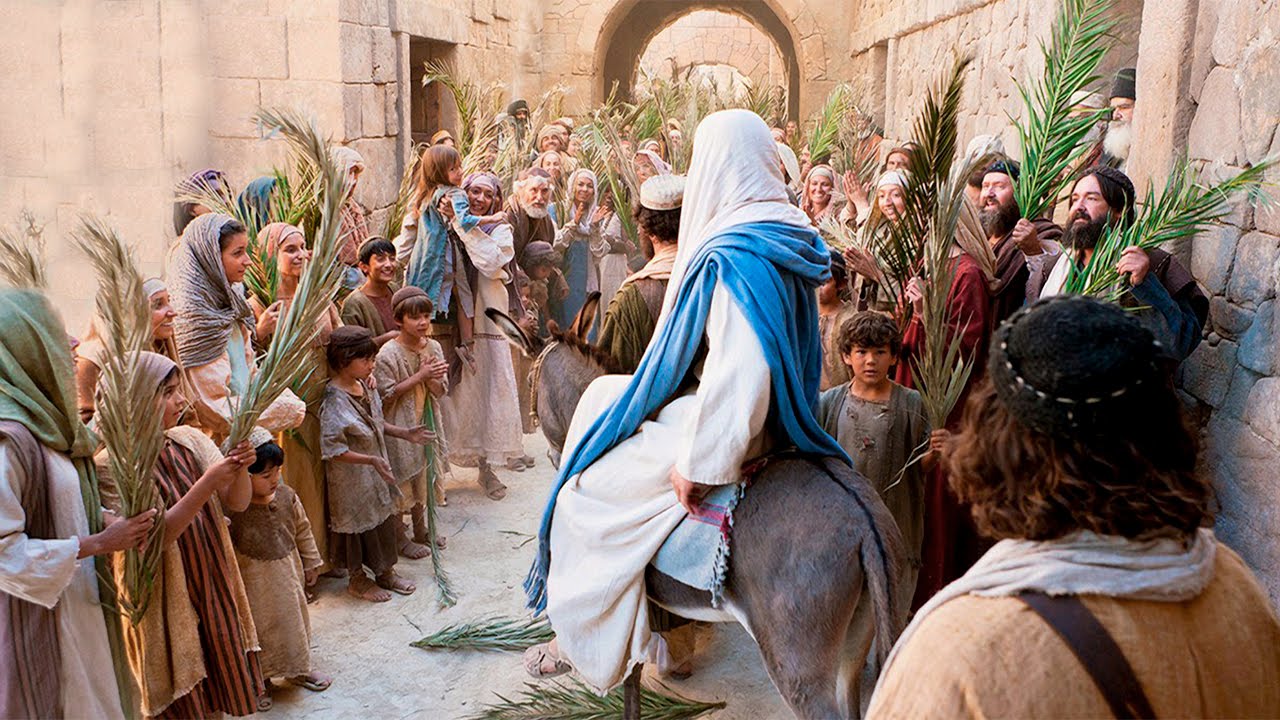As we enter into this Holy Week this Palm Sunday, I wanted to share with you some reflections on the key days of the liturgical events that we celebrate this week because the mysteries they encompass are the root of our whole life in Christ.
The first concerns Good Friday – the pivotal moment of Jesus’ mission when He did what He was born as a man to do: offer His life in sacrifice for our sins so that we could enter into joyful Communion with Our Father in Heaven. This is an excerpt from Catherine de Hueck Doherty, a Russian immigrant who launched many lasting apostolic works in the U.S. and Canada. This may be helpful as we pray venerating the Cross at the 3:00 p.m. Good Friday liturgy. Her theme is that God proves to us His love through the Good Friday sacrifice. It also helps answer the question I often hear, “Why do we call it Good Friday if it observes the terrible evil of killing the very Lord of Life and hanging Him on a tree?”
Today, celebrating the death of Christ, we in truth are celebrating his awesome proof of love of us. The Resurrection will be the glorious signature on that proof. The Resurrection is proof, too, that it was truly the Second Person of the Most Holy Trinity who for the love of us incarnated himself [took on human flesh] and died on the cross.
Today is Love’s Day. There is sadness and sorrow for his pains. There is a realization of our share in that pain. There is a desire to share in that pain; love always shares! But above all, there is joy beyond expression, joy that mounts in crescendo like the wave of a sea lashed by the winds. Joy and gratitude that surpass human understanding. God loves me! Now the door is open once more to paradise, and I can, if I love him back, be one with him for eternity….
The sadness of Lent is already turning into joy, because he wanted so much to be crucified for you and me. For by dying he made us alive. Good Friday is a sad day because his crucifixion was for my sin and yours and those of millions and millions of others. But it is a glad day, because it is the proof of his love…. God came and took upon himself the shape of a servant, a slave, for us. He surrendered everything, including his body, for love of us. He emptied himself. The great question that stands before us on Good Friday is: are we going to empty ourselves in response to his emptiness? The moment we do we shall know the joy of Christ. Not withstanding the pain, the cross, the tomb, if I empty myself because I am in love with God, I shall know joy.
But the Church has always powerfully reminded us that we don’t experience this overwhelming love of the Lord on Good Friday alone. We experience that mystery, that beauty, that power of the Cross every time that we celebrate the Holy Mass, which makes us new and renews our love for Christ, Crucified and Risen, the Way to the Father – even as we literally feed on His holy presence.
But like every good gift in life, we risk taking this love for granted. The Mass of the Lord’s Supper on Holy Thursday is a great opportunity to take a step back and renew our awe for the inestimable gifts of the Holy Eucharist and the Holy Priesthood which Our Lord instituted in that Last Supper.
This reflection is taken from an excellent book by French layman Francois Mauriac entitled Holy Thursday: An Intimate Remembrance. (It is still in print). M. Mauriac speaks powerfully of the shocking – yet beautiful – truth that the Lord would share the power of His Cross and Resurrection through giving Himself as bread:
Only once during His public life had the Lord spoken openly of the marvel conceived from all eternity by His love. [See John 6]. He remembered how much the revelation had cost Him knew how many souls had forsaken Him that day. At the synagogue in Capernaum had been uttered strange, scandalous words. Not only the Jews but also His disciples objected in these words, “This is a hard saying, who can listen to it? … [But] the Lord made so bold as to lift the corner of the veil. “I am the bread of life. He who comes to me shall not hunger and he who believes in Me shall never thirst.”
And as from the stupefied and divided crowd arose the question that reasonable people will keep on asking until the end of this world, “How can this man give us His flesh to eat?”, Jesus overwhelmed them with reiterated, insistent, irritating affirmations. It was necessary to shout it; the lukewarm people would leave, the timid ones would be troubled: “Amen, amen I say to you unless you eat the flesh of the Son of Man, and drink His blood, you shall not have life in you. ….”
When the renegades had withdrawn, Jesus was left alone with the Twelve Apostles [and asked them this question]. “Do you also wish to go away?”… Thus until the end of time the Creator will plead with His creatures.
Let us pray during this Holy Week that we will not be lukewarm, not be timid, but instead embrace the mystery of Christ’s Holy Eucharist who pleads that we spend time adoring Him in His Divine presence and sharing in the divines gift of Himself.
